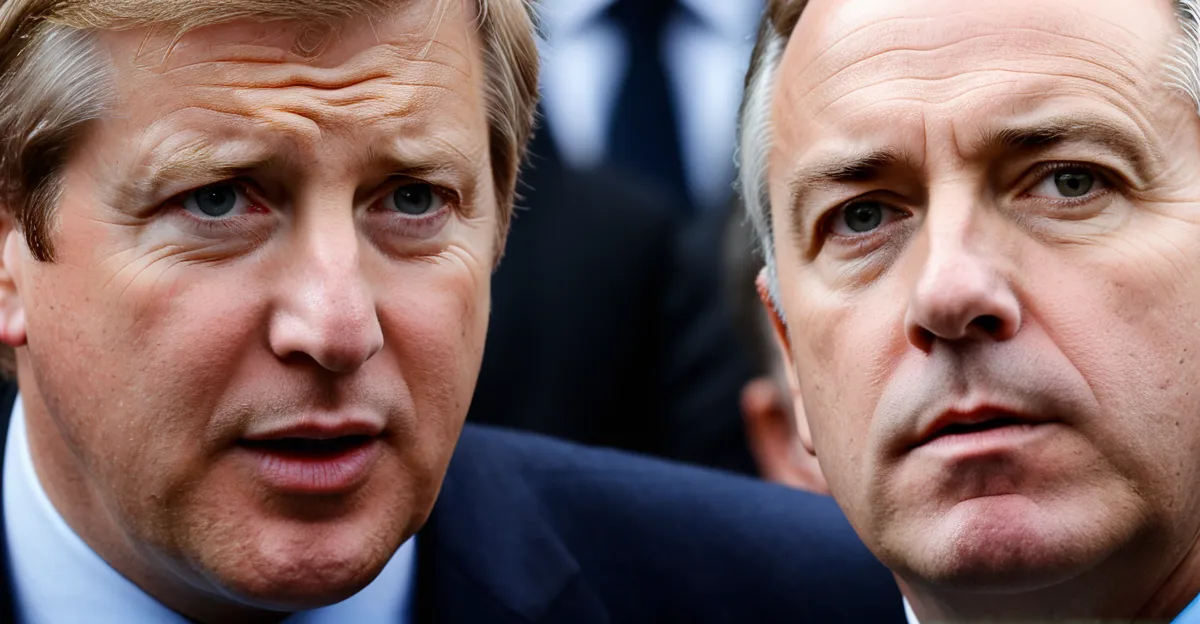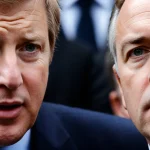The Evolving Landscape of UK Politics
The UK political dynamics have undergone significant transformation in the wake of Brexit, reshaping long-standing political norms and influencing the current political climate profoundly. Brexit has introduced complex challenges that extend beyond economic considerations, altering policy priorities and compelling political actors to reconsider traditional alliances.
One of the most striking effects lies in the shifting party alliances and leadership struggles. Political parties are grappling with internal fractures sparked by divergent views on Brexit consequences, leading to realignments that challenge historical party loyalties. These developments underscore the volatility permeating the UK’s political stage and the difficulty in maintaining cohesive governance.
Also to read : What Drives Audience Engagement in UK News Today?
Moreover, social and cultural divisions have intensified, feeding into the evolving political landscape. Issues such as national identity, immigration, and the UK’s future role globally have become flashpoints, reflecting broader public debates and contributing to increased political polarisation. This division complicates consensus-building and impacts policy formulation, requiring nuanced approaches to reconcile differing community perspectives.
In summary, the post-Brexit era has profoundly shifted the UK political framework, merging economic repercussions with deeper political and social ramifications that continue to shape the nation’s trajectory.
Also read : What Are the Key Factors Influencing UK’s Economic Landscape Today?
Brexit Repercussions and Economic Instability
Brexit has had profound repercussions on the UK economy, fueling ongoing economic uncertainty that continues to challenge businesses and policymakers alike. The shift away from the EU single market has introduced significant trade challenges, with new customs checks and regulatory barriers disrupting established supply chains. This instability has particularly impacted sectors reliant on seamless cross-border trade, such as manufacturing, agriculture, and finance.
The labour market has also experienced notable changes due to Brexit’s effects. Restrictions on the free movement of workers have led to shortages in key industries like healthcare and hospitality, compounding difficulties for employers. This has forced many sectors to adapt recruitment strategies and increased reliance on domestic skills development, impacting workforce composition and productivity.
In response to these challenges, government policy has focused on mitigating volatility through various measures. Initiatives aimed at securing new trade agreements outside the EU seek to diversify economic opportunities and reduce dependency on European markets. At the same time, support programmes for affected industries, including funding for innovation and infrastructure investment, aim to bolster economic resilience amid the post-Brexit challenges.
Overall, the economic repercussions of Brexit continue to shape the UK’s financial landscape, requiring adaptive policy responses to manage the evolving environment and stabilize growth prospects.
Devolved Government Tensions and Regional Disparities
The role of devolved governments in the UK has become increasingly contentious, particularly as Scottish independence movements gain momentum. Calls for a second referendum reflect persistent demands for greater autonomy or outright independence, driven by perceptions that Westminster’s governance does not fully address Scotland’s distinct political and social priorities.
This tension highlights ongoing power struggles between Westminster and devolved administrations, complicating governance and policy coordination within the UK. Disputes often arise over fiscal powers, legislative competences, and the extent of devolved authority, feeding wider debates about the union’s future. These struggles underscore the challenges of balancing centralized decision-making with regional autonomy.
Additionally, underlying regional inequalities across England, Scotland, Wales, and Northern Ireland contribute to political friction. Economic disparities, variations in public service investment, and differing social conditions fuel dissatisfaction with the existing governance structure. Addressing these socio-economic challenges is crucial to easing tensions, as persistent inequalities drive demands for more localized control and tailored policy responses. The evolving dynamic of devolved governance thus remains central to the UK’s political landscape amid post-Brexit uncertainties.
Party Divisions and Governance Challenges
The UK is currently experiencing significant party fragmentation, with internal divisions emerging within major parties that complicate governance. These splits often stem from differing stances on post-Brexit challenges, such as trade policy and national identity, intensifying political polarisation. This deepening divide hampers effective cooperation between party factions, affecting the passage of legislation and coherent policy-making.
Polarisation has also led to an erosion of public trust in political institutions. Voters increasingly perceive political parties as prioritising partisan conflicts over addressing urgent national issues, which undermines confidence in democratic processes. Such disenchantment risks lowering voter engagement and complicating efforts to build consensus on key policies.
Moreover, governance issues arise from these divisions, as fragmented parties struggle to present unified platforms or stable leadership. This instability inhibits clear decision-making, delaying responses to economic and social priorities. Addressing these governance challenges is essential for restoring political cohesion and improving institutional effectiveness amid the evolving UK political landscape.
Evolving International Relationships
The UK’s foreign policy has undergone a significant transformation in response to post-Brexit realities, redefining the nation’s role on the global stage. This shift is marked by a recalibration of global alliances and international relations, as the UK seeks new partnerships beyond the European Union. The government is prioritizing trade agreements that diversify economic ties, reflecting a strategic pivot to strengthen connections with countries across North America, Asia, and the Commonwealth.
Redefining the UK’s global position also involves an active reassessment of diplomatic priorities to align with emerging geopolitical contexts. This realignment influences negotiations on trade, security, and multilateral cooperation, positioning the UK as an independent actor navigating complex international dynamics. The emphasis is on fostering relationships that support economic growth and global influence, while maintaining traditional alliances, notably through NATO and the United Nations.
Security cooperation remains a critical component amid these changing alliances. The UK continues to engage in collective efforts to address international threats, from cybersecurity to terrorism, adapting strategies to maintain effectiveness without the EU framework. This balancing act is essential for safeguarding national interests while contributing to global stability in an evolving geopolitical landscape. The evolving international relationships thus underscore the UK’s intent to assert autonomy while managing the practical demands of global interdependence.
Expert Insights and Future Projections for UK Politics
Understanding the UK political future requires careful consideration of ongoing post-Brexit challenges and the current political climate. Political analysts emphasize that the UK political dynamics remain fluid, shaped by evolving party alliances, governance struggles, and shifting public sentiments. Experts largely agree that the nation’s trajectory will hinge on how effectively political actors manage these complex pressures.
A prominent prediction centers on increased political fragmentation. Analysts forecast that party fragmentation could deepen if leadership struggles and internal divisions persist. This might lead to unstable coalitions or the rise of smaller parties influencing policy, complicating governance further. The risk of prolonged polarisation is highlighted as a key factor undermining consensus-building, with implications for legislative efficiency and democratic engagement.
Future scenarios underscore the significance of regional tensions as well. Experts note that demands for greater autonomy or independence—particularly from Scotland—will remain a critical issue, potentially reshaping the UK’s constitutional framework. Addressing regional inequalities through targeted policies is seen as vital to fostering national cohesion and reducing political friction.
Key issues to watch include the government’s ability to navigate economic volatility from Brexit repercussions and maintain constructive international relations, which will directly impact domestic stability. Moreover, enhanced political transparency and renewed public trust are considered essential for sustainable governance. In sum, expert analysis paints a picture of a politically complex but navigable future, where adaptive strategies will determine the UK’s success in overcoming its pressing challenges.










